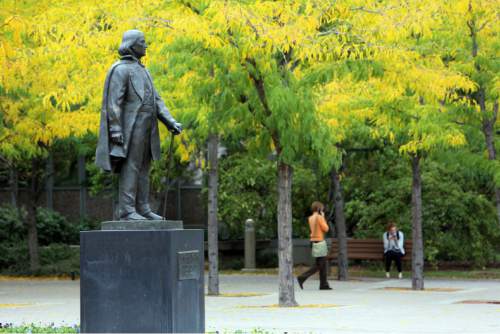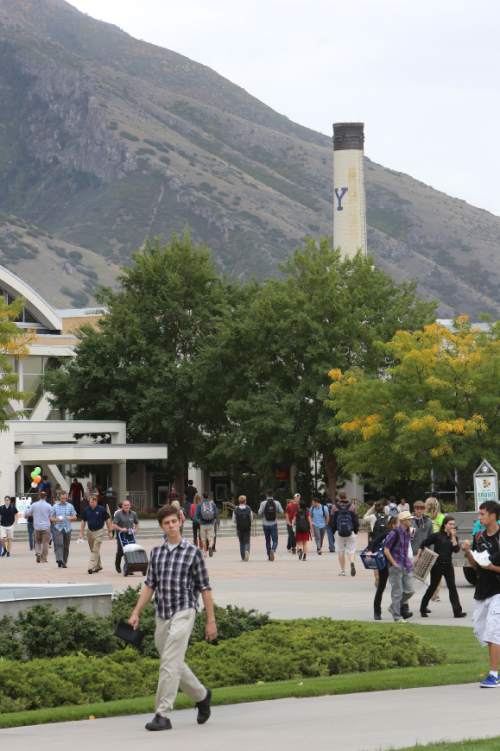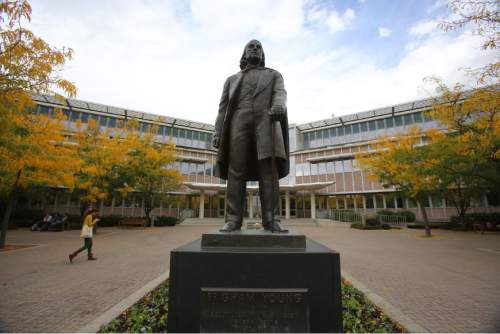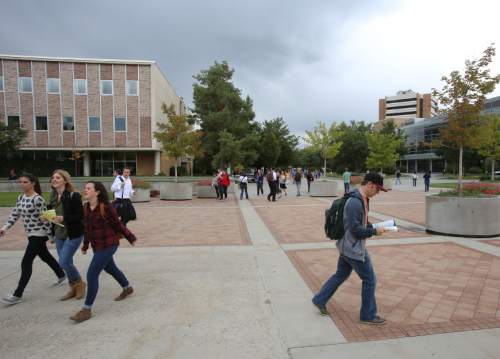This is an archived article that was published on sltrib.com in 2014, and information in the article may be outdated. It is provided only for personal research purposes and may not be reprinted.
Earlier this month, Brigham Young University professors discovered that recording devices had been concealed underneath several classroom stools in the Joseph Smith Building, where religion courses are primarily taught and department faculty meetings are held.
"A university investigation has been launched," BYU spokeswoman Carri Jenkins confirmed. "The administration is taking this very seriously."
Jenkins declined to speculate on possible suspects or motives.
The Provo school — owned by The Church of Jesus Christ of Latter-day Saints — "does not know who placed them there," Jenkins said, "but it was not done by the administration."
The recordings "appeared to be a violation of the law," Lt. Arnold Lemmon, public information officer for BYU police, said Monday. "We need to get all the facts to determine if it did break the law."
In Utah, only one party needs to be aware that a conversation is being taped, Lemmon said. "You have to look at intent."
The detective assigned to the case conducted an "electronic forensic examination" on a recorder, the officer said, and determined that some material had been erased but it could not be recovered.
The devices were attached to the stools with Velcro, which was found under other chairs as well.
A BYU history professor penned a tongue-in-cheek blog about the incident.
"If anyone at BYU wants to hear what I say in the classroom, they don't need to attach a voice-activated recorder under the classroom teacher's chair with Velcro," William Hamblin wrote at patheos.com. "Feel free to put the recorder on the table. I'll even start it for you. ... Really, there is no need to go to the expense of buying a voice-activated recorder, sneak it in the classroom at night, and surreptitiously tape it under the chair."
Police have no suspects, Lemmon said, but continue to investigate.









